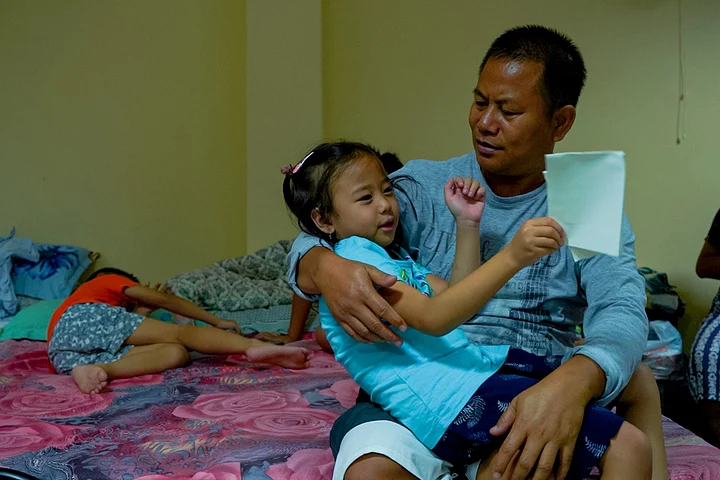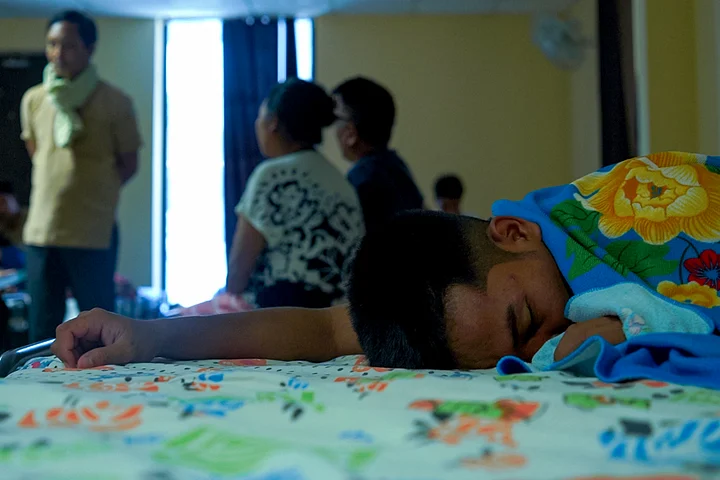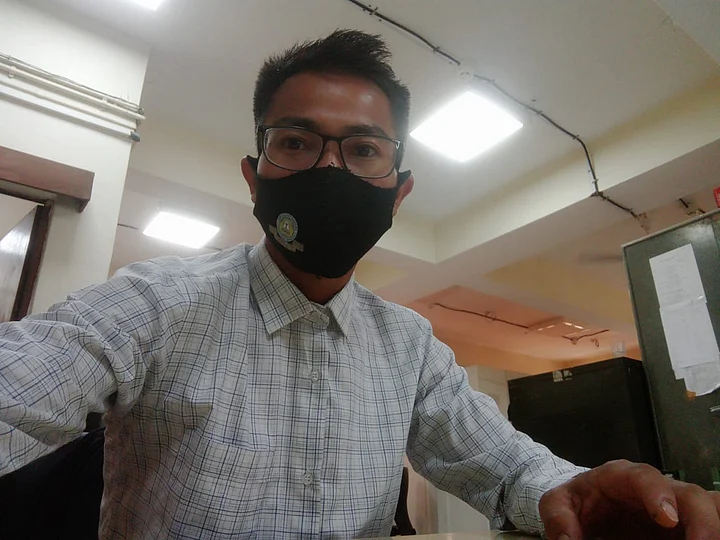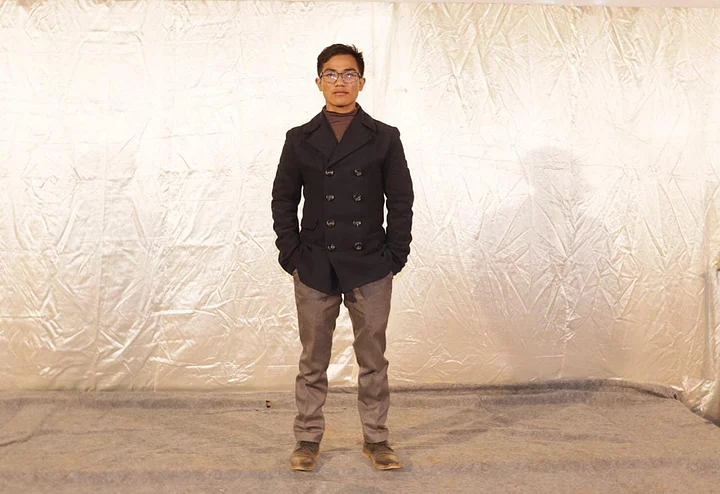"The gas cylinder that was inside the kitchen, when it exploded, they (the attacking Meiteis) would clap their hands. They would clap their hands in victory, sir," said 58-year-old V Rosalind, failing to hold back her tears.
In New Delhi's Mahavir Enclave, lying on a bed with one foot wrapped with thick plaster, Rosalind is one of the hundreds of people from the Kuki community who have fled Manipur, a state engulfed with violence between the non-tribal Meiteis and the tribal Kukis.
The Quint visited a makeshift shelter camp in Mahavir Enclave, originally a seminar hall of a Christian non-governmental organisation, the Evangelical Fellowship of India. There are around 50 people who are taking shelter here from 9-10 families, who described their traumatic experiences while escaping the horrific violence.
- 01/04
A makeshift shelter camp for the Kukis who have fled to Delhi.
(Photo: Ribhu Chatterjee/The Quint)

- 02/04
A makeshift shelter camp for the Kukis who have fled to Delhi.
(Photo: Ribhu Chatterjee/The Quint)

- 03/04
A makeshift shelter camp for the Kukis who have fled to Delhi.
(Photo: Ribhu Chatterjee/The Quint)

- 04/04
A makeshift shelter camp for the Kukis who have fled to Delhi.
(Photo: Ribhu Chatterjee/The Quint)

Dr Hangzo: Escaped With her 87-Year-Old Mother
Dr Tara Manchin Hangzo, also 58 years old, narrated how she fled Imphal with her 87-year-old mother and her sister who suffers from Down syndrome.
"Huge crowds came into our colony screaming and yelling. They had sticks and that electric torch kind of thing in their hands and they were screaming, 'Kill the Kukis'. We were so frightened that we didn’t know what to do," Dr Hangzo said as she animatedly narrated her ordeal.
She could not believe that her own neighbours, who she and her family have lived with for 60 years were attacking them. "How can they attack us? We also recognised some faces from opposite our road. There were some people who would run shops that we would regularly go to, like second-hand and hardware stores. I thought, my God, how can they come to kill us," she asked, puzzled.
"We don’t really have much to look forward to," said 30-year-old Lalboi Mangte. "We don’t know when we will be able to go back to our home state, and we just really want to live a life that resembles some sort of normalcy."
V Rosalind: Fractured Her Leg While Escaping
V Rosalind, whose leg got fractured because she had to jump off her building to escape, said that her son had to carry her piggyback to escape the Meitei mobs.
"From there, we were evacuated to the army convoy and it was quite a distance. He had to carry me everywhere. It’s such a trauma, such a nightmare," she recounted, holding her head in pain.
The state witnessed fresh violence on Sunday, 29 May, with Chief Minister Biren Singh telling reporters that 40 terrorists had been killed in a crackdown by security forces.
George Thangkholal: Says Situation is Like a Civil War
At the seminar hall turned refugee camp, 38-year-old George Thangkhola said that he likened the situation in Manipur to a civil war.
"I think it really qualified to be called a civil war because one community is seeing the other only as the enemy, that is, to kill or to murder. At the slightest opportunity, they are burning down houses. You see, no one is safe in the sense that if you belong to the Kukis, the Meiteis would attempt to harm them," Thangkhola, who worked as a school teacher, opined.
The first wave of violence in the state had claimed over 70 lives. Many more have fled, with young people losing their jobs in the process.
Lallian Vaiphei: Had Found a Govt Job Last Month
Lallian Vaiphei, 28, is looking for a job in Delhi. But the sadder part, he said, is that he got a government job in Imphal only last month that he was forced to quit after he fled.
"Actually the job that I got in Imphal was the post of a data entry operator at the Accountant General office, which is a centralized job. I worked there only for one month. Due to the unexpected violence, I had to leave it," he lamented.
- 01/02
A picture of Lallian Vaiphei back in Imphal before he fled.
(Photo: Ribhu Chatterjee/The Quint)

- 02/02
A picture of Lallian Vaiphei back in Imphal before he fled.
(Photo: Ribhu Chatterjee/The Quint)

He further goes on to say that it is very hard to get a central job these days anyway but he is nevertheless pursuing the same in the national capital.
'They Need to Sustain Themselves in Delhi'
"So basically, we have a certain schedule that they have to follow. They will have breakfast, lunch, and dinner, but the food will be prepared by themselves," explained Mang Ngaihte, who is a coordinator at the relief camp organised by the Evangelical Fellowship of India.
"While they are here, during this period of time, we want to make sure that at least the children should get to go to school and that capable with certain skills should find jobs, you know, jobs that will help them go by for the time."
Ngaihte further said that most of these people, if not all, have had their houses and everything else reduced to a pile of ashes. "So we are doing everything we can to get them a job, small or big so that they can sustain themselves in Delhi right now."
The Kukis taking refuge in Delhi say that while life is nothing like it used to be back home, they are happy to just be alive.
"At least I am safe here I am safe here. I know the weather conditions are not ideal, but what more can I ask for? I am safe. That’s the most important," insisted Rosalind.
Dr Hangzo also thinks that she is part of the fortunate ones. "For my old mother and my sister with Down syndrome, it was so traumatic. We came without any clothes. We needed a change of clothes and we were not aware of the surroundings at all in Delhi, like where is the ATM, where do we go shopping. But we are still one of the fortunate few, you know," she added.
She then described the ordeal of a girl who used to work in her house in Imphal, who has also escaped to Delhi but barely knows English or Hindi, and thus always needs to be escorted wherever she goes.
"We have been chased away, literally chased away and thrown away and asked to not come back because we are apparently foreigners. I have lived in Manipur for 60 years. I am 58 years old now. All my life, I have belonged to Imphal and my mother is 87 years old. She longs to go back. She wants to die in her own homeland. Will it be possible?"
[Author's note: The violence in Manipur has caused displacement on both sides, both the Kukis and the Meiteis communities had to flee their homes. For this short documentary, we really wanted to tell the stories of internally displaced people - both Kukis and Meiteis who had to take shelter in Delhi. But the Meitei community wasn't very forthcoming. If you are a Meitei who had to flee from Manipur, please reach out to us at The Quint, so that your story is also heard. And lastly a request to our readers and viewers - such reports from the ground involve a lot of costs and it is only possible when you support us and contribute to our free and fearless journalism. If you like what we do, consider visiting our website and becoming a member, so that it is possible for us to get such stories out.]
(At The Quint, we question everything. Play an active role in shaping our journalism by becoming a member today.)





